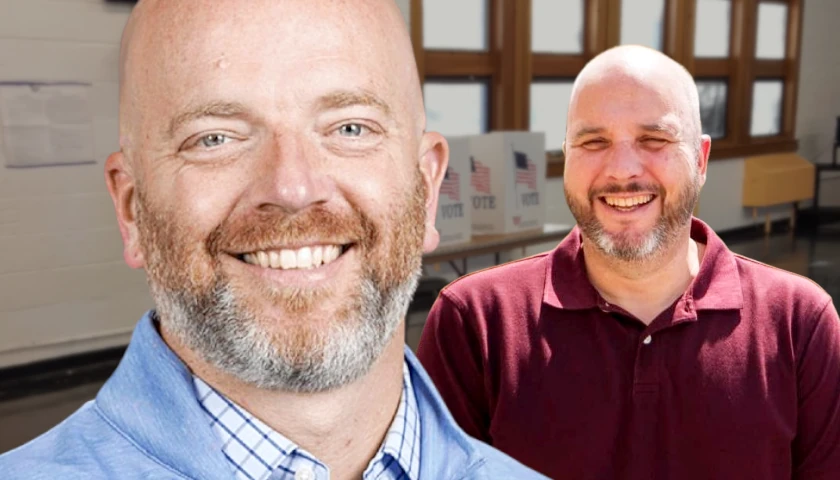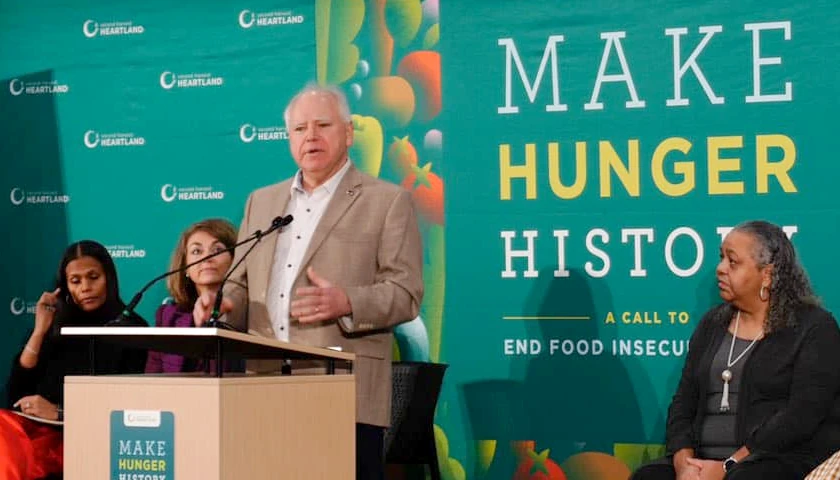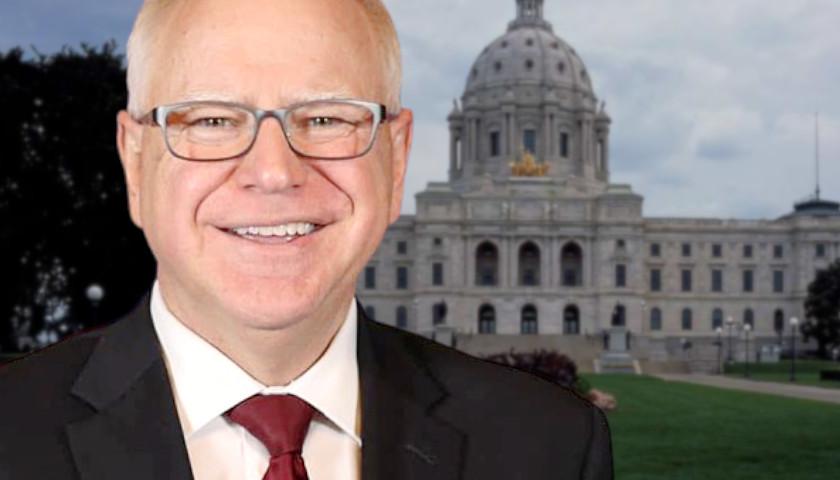by Hank Long
With almost all the dust settled the day after the election in Minnesota, caucus leaders in the Minnesota House faced the media for the first time since they learned that Republicans and DFLers are likely to be deadlocked in a 67-67 tie when the 2025 legislative session starts on Monday, Jan. 13
Speaker of the House Melissa Hortman and House Minority Leader Lisa Demuth both acknowledged that their caucuses will have just a few weeks to structure the organization of their chamber in a challenging, but not unprecedented, “power-sharing agreement.”
The reality of a tie among Republicans and Democrats in 134 House elections across Minnesota means that neither caucus can pass a bill without support from at least one member from the other party. And as 2025 is considered a budget year at the legislature, both the House and Senate are constitutionally bound to pass a state budget that Gov. Tim Walz will sign.
While Demuth (pictured above, right), R-Cold Spring, promised on Wednesday that the priority among her Republican colleagues is “restoring the transparency and accountability in the state of Minnesota” after two years of a DFL “trifecta,” she acknowledged that “right now this is an opportunity to work together with our colleagues, the Democrats, across the aisle and find ways to best serve Minnesotans.”
“Our goal over the last two years has been to bring balance back into St. Paul and make sure that that full, one-party, Democrat control would be broken up, to bring that balance back. As of the results that came through last night, we’ve accomplished that goal,” Demuth told media members as she was joined by a handful of her GOP colleagues, along with Rep.-elect Wayne Johnson, who beat his DFL opponent in the 41A election despite being outspent 2-to-1.
“Minnesotans were very clear that [with] what they’ve experienced over the last two years, they wanted something different, they wanted that balance,” Demuth said.
She then rattled off a list of Republican objections to what they saw as a runaway train in 2023 and 2024 that was driven by Walz and the DFL legislative majority.
“The spending of the $18 billion surplus, the increase to our state budget of 38 percent, mandates on businesses, mandates on schools, knowing that we have record fraud in the state of Minnesota that has gone unaccounted for,” Demuth said. “We saw voters across the state choose to send Republicans back into what we thought would be a majority—but we are looking at a tie. We know we are working with a Democrat-led Senate, and a Democrat governor, but we are equal parts right now.”
How will a ‘power sharing agreement’ work?
Just once in Minnesota’s history has membership in the House of Representatives been deadlocked among Republicans and Democrats at 67-67. And while the chatter among legislators and media members on Wednesday was that the written accounts reveal that the 1979 session didn’t end on the most positive note, both Demuth and Hortman said they remain optimistic they can find a more practical solution than their predecessors did 45 years ago.
“One really good thing about having a power-sharing agreement is you wouldn’t really have that dynamic on the floor where one party lays down on the railroad tracks and another party feels like they have to go to extraordinary means to pass bills,” Hortman (pictured above, left) said. “So everything would have to be pre-negotiated before it got to the floor, because there is really no sense in going to the floor and tying 67-67.”
They know that Minnesota law doesn’t allow two speakers. The possibility of a rotating speaker pro tempore to correspond with bills that come to the floor from Republican or DFL-controlled committees was brought up. Both Demuth and Hortman—who are both expected to seek to retain their status as leaders of their respective caucuses—stressed that it’s too early to provide opinions on whether such a structure might work.
“The model the Minnesota House adopted in 1979 seems a bit archaic,” Hortman said. “It doesn’t seem like a fit for our modern times … But when we look at [legislative ties] in other states, we see some configurations that might be more practical.”
Demuth said she and Hortman had spoken with one another briefly on Wednesday and planned to follow-up in the coming days to begin power-sharing negotiations. She added that “everything is on the table right now.”
The DFL planned to meet to elect their new leadership on Thursday evening, and Republicans will elect their leaders Friday morning.
Recount expected in St. Cloud, Shakopee contests
While both caucuses are planning for a 67-67 membership structure, there is still a possibility that two races that were decided in favor of Democrat incumbents by just a handful of votes could result in a Republican majority if either were to show a Republican victor after anticipated recounts.
In House District 14B, four-term incumbent Rep. Dan Wolgamott, DFL-St. Cloud, appears to have staved off an upset from Republican challenger Sue Ek by just 28 votes. And Rep. Brad Tabke, DFL-Shakopee, won by an even slimmer margin—just 13 votes—in House District 54A over Republican challenger Aaron Paul. Both Ek and Paul are expected to seek recounts, which would be publicly funded because the winners’ margins were less than 0.5 percent, as required by statute.
When asked how Gov. Walz—who returns to Minnesota this week after he and presidential running mate Kamala Harris lost their election to Donald Trump and J.D. Vance—views the end to the DFL “trifecta” and a 67-67 tie in the state House, Hortman said, “I haven’t talked to him yet.”
“I have talked to (Walz chief of staff) Chris Schmitter, and of course we are very disappointed in the results of the election,” Hortman said. “We would have loved to have Gov. Walz be our vice president, but I also think he is a pretty damn good governor, and I am looking forward to working with him some more.”
– – –
Hank Long is a journalism and communications professional whose writing career includes coverage of the Minnesota legislature, city and county governments and the commercial real estate industry. Hank received his undergraduate degree at the University of Minnesota, where he studied journalism, and his law degree at the University of St. Thomas. The Minnesota native lives in the Twin Cities with his wife and four children. His dream is to be around when the Vikings win the Super Bowl.
Photo “Melissa Hortman” by Melissa Hortman. Photo “Lisa Demuth” by Lisa Demuth.





